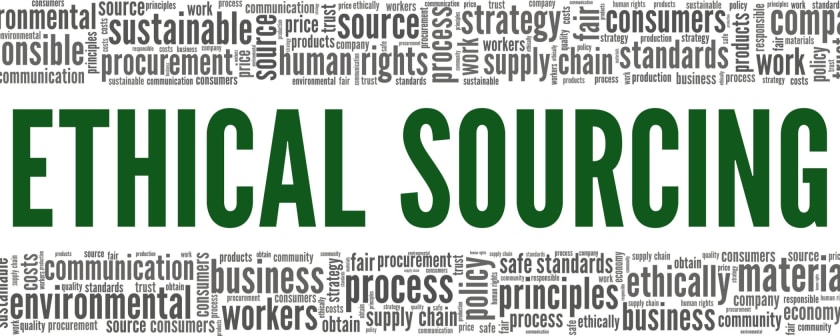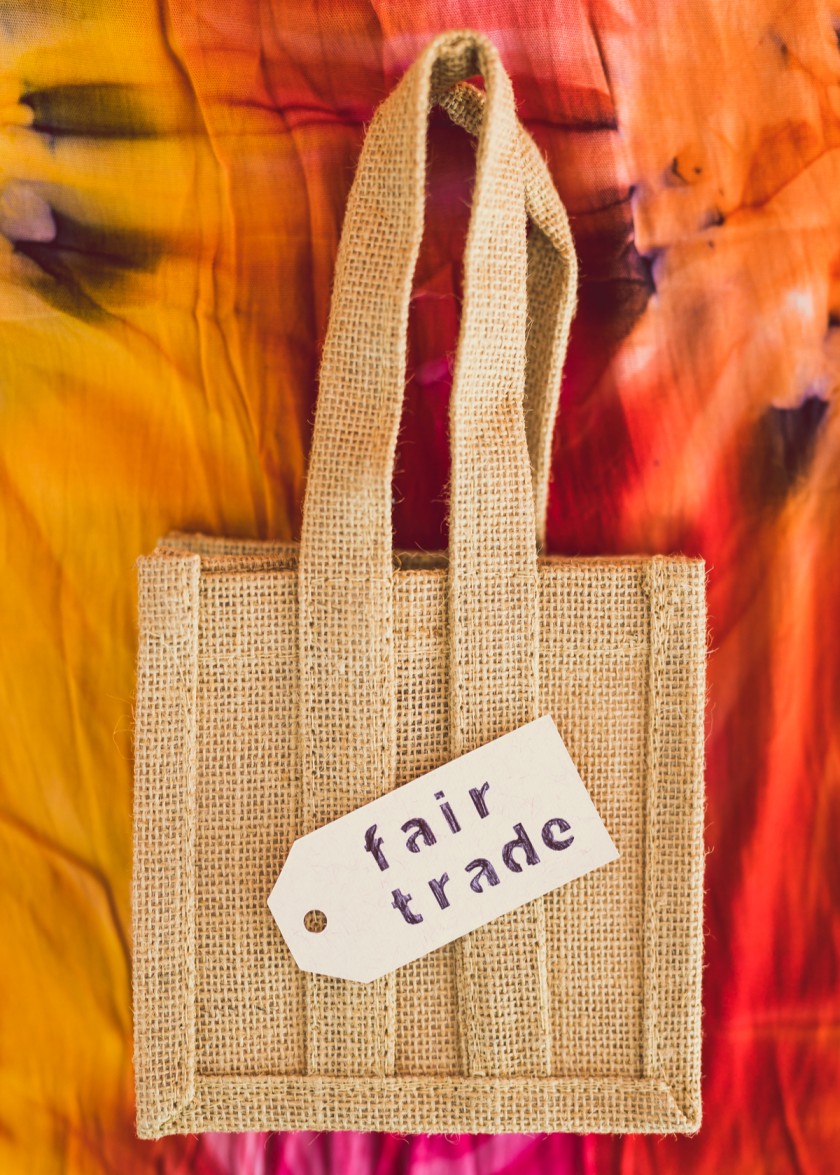5 Ways Leading Towards Ethical Sourcing



The fashion industry is one of the most polluting industries globally, with many ethical and environmental violations occurring. Many of these violations are linked to the lack of understanding of ethical sourcing. Sourcing products is a massive part of the fashion business. Therefore, it creates an enormous impact on the environment.
Suppose a fashion brand truly cares about the environment and wants to be part of the sustainable fashion movement. In that case, they need to think about how they go about sourcing their materials. The materials they use will be a big part of their company's impact on the environment.
The article shares details about ethical sourcing and how a fashion brand can practice it.
Let’s get to the basics first and understand ethical sourcing and its benefits for fashion brands.
What Is Ethical Sourcing In The Fashion Industry?
In simple words, ethical sourcing or responsible sourcing means complying with the acceptable levels of responsible and ethical practices concerning human rights and pollution. It is achieved by meeting the established principles. These established principles are a safe and hygienic environment for employees, fair wages, reasonable working hours, no discrimination for employees, and decent labour standards.
The three main pillars of ethical sourcing are prevention, detection, and response. Preventions mean restricting the violations of human rights in the supply chain. Detection means identifying the suppliers or sources that do not comply with principles. And response means taking necessary actions against sources that violate established principles.
Fashion brands must integrate these established principles with their suppliers, contractors, retailers and everyone involved in the manufacturing process to ensure ethical sourcing.
Another term vastly used in the fashion industry nowadays is sustainable sourcing. While ethical sourcing and sustainable sourcing are often referred to as one, there is a slight difference between the two. Sustainable sourcing follows the established principles in ethical sourcing and considers the impact created on the environment and society. Plus, it encourages better livelihood and climate-first practices.
In simpler words, sustainable sourcing is not just about doing less harm to the society and environment but doing more good for both.
Until recent times there was a misconception that ethical sourcing has higher operating costs, and consumers are unwilling to pay the increased price to ethical fashion brands. But it has proven to be wrong. The main reason is that the consumers' awareness and mindful lifestyle choices have made ethical fashion brands billions in revenue. Many eco-conscious consumers prefer clothes that are not harmful to the environment or humans involved in the process.
But this is not it. There are many benefits of ethical and sustainable sourcing for fashion brands.
What Are The Benefits Of Ethical Sourcing For Fashion Brands?

- Adds value to the brand
Consumer awareness about the product, its origin, and the production process has increased exponentially in recent times. Therefore, fashion brands built on ethical sourcing and sustainable production processes will thrive in the industry. Brands' socially conscious way of doing business increases its brand value.
- Better business performance
Happy employees mean work performance leading to more revenue. And this equation works for fashion brands too. A better work environment guarantees satisfaction in employment which ultimately results in more profits for fashion brands.
- Customer loyalty
Ethically sourced products are in massive demand now more than ever. Customers are ready to pay higher prices for better quality products. The increasing awareness for sustainability is an all-time high, and fashion brands can capitalise on it. Brands can use it as a USP to attract customers. And customers are sure to return again and again if you deliver high quality ethically sourced products.
- The guilt-free living
Fashion brands can enjoy their success knowing it has not harmed any human or the environment while building a business.
Once the brands are aware of the benefits of ethical sourcing, it will be easy to incorporate it into the business.
Ways To Ensure Ethical Sourcing In Fashion Business
Sourcing is not just about buying raw material but delivering finished goods. And fashion brands should practice ethical sourcing in every step involved in the process.
- Determine your motives
Fashion brands must be clear on what they want to achieve with ethical sourcing. Is it to attract customers, add value to society, protect the environment, or build an image?
Being clear on the motive will help brands strategies the supply chain process and marketing. It will help to connect with like-minded people in the business.
- Custom clothing
Customised clothing is at its all-time high demand. Consumers are enjoying unique, fashionable and customised fit clothes. They are moving towards personalised shopping experiences rather than mass-produced clothes. The awareness about saving natural resources, raw materials, and sustainable sourcing is helping consumers choose ethically sourced fashion.
On-demand and customised clothing also reduce the waste generated by mass production. Fewer clothes are quickly sold, and there are fewer chances of deadstock fabrics. It avoids landfill waste. So, it is an eco-conscious way of production—also, consumer favourites.
- Fair Trade

Fashion brands must consider sourcing materials from responsible suppliers. Innovate new ways to connect with ethical suppliers. Brands can rely on modern supply chain technology to find trusted partners. It’s high time fashion brands start putting efforts into finding reliable and ethical suppliers.
Fashinza is a smartchain innovative organisation. We help fashion brands connect with certified and best-in-class suppliers and manufacturers. With a dream of a greener fashion industry, Fashinza encourages its partners to use sustainably sourced materials.
- 5 R’s in fashion
The pillars of sustainable fashion are 5 R's - Reduce, Repair, Recycle, Repurpose, and Reinvent.
Here are the ways fashion brands can incorporate them into the business.
- Reduce: Try to reduce the impact on the environment by using renewable energy sources and generating less waste.
- Repair: Reuse or repair the materials as much as possible. Redesign old clothes and give them a new look.
- Recycle: Focus on recycling the fabrics. For this, brands must use recyclable materials made of organic cotton, hemp, bamboo.
- Repurpose: Upcycle or repurpose old clothes into new wearable products. Use pre-consumer waste and post-consumer waste and give them a new life.
- Reinvent: Always thrive on reinventing ways of sustainable sourcing.
- Eco-friendly fashion
Eco-friendly fashion focuses on incorporating practices that promote a better environment for everyone - humans and animals. It is easily achievable by using renewable energy sources, non-toxic products, healthy farming practices, and using biodegradable fabrics.
The bottom line
It is easy to incorporate ethical sourcing in the fashion business when brands focus on sustainability. Whether sourcing raw materials or delivering finished products, every step should be taken considering its impact on the environment. Fashion brands can capitalise on the conscious lifestyle of the consumers using ethical sourcing.
Finding suppliers following ethical methods and enforcing regulations is time-consuming and difficult to manage. Fashinza can help you find reliable suppliers for your fashion brands. You can contact Fashinza for any help.



















